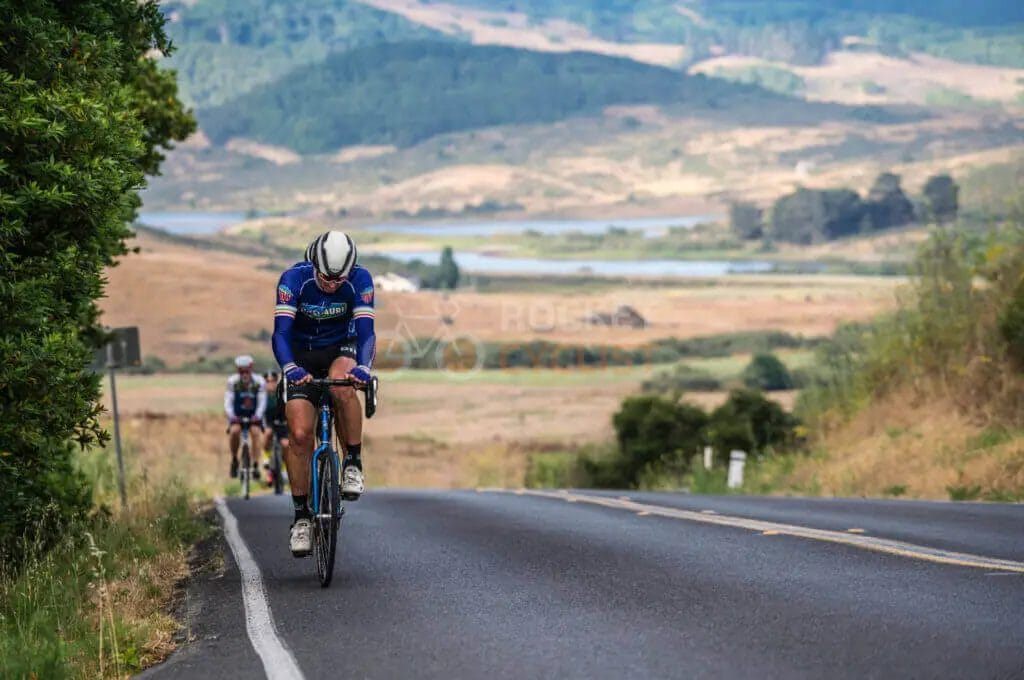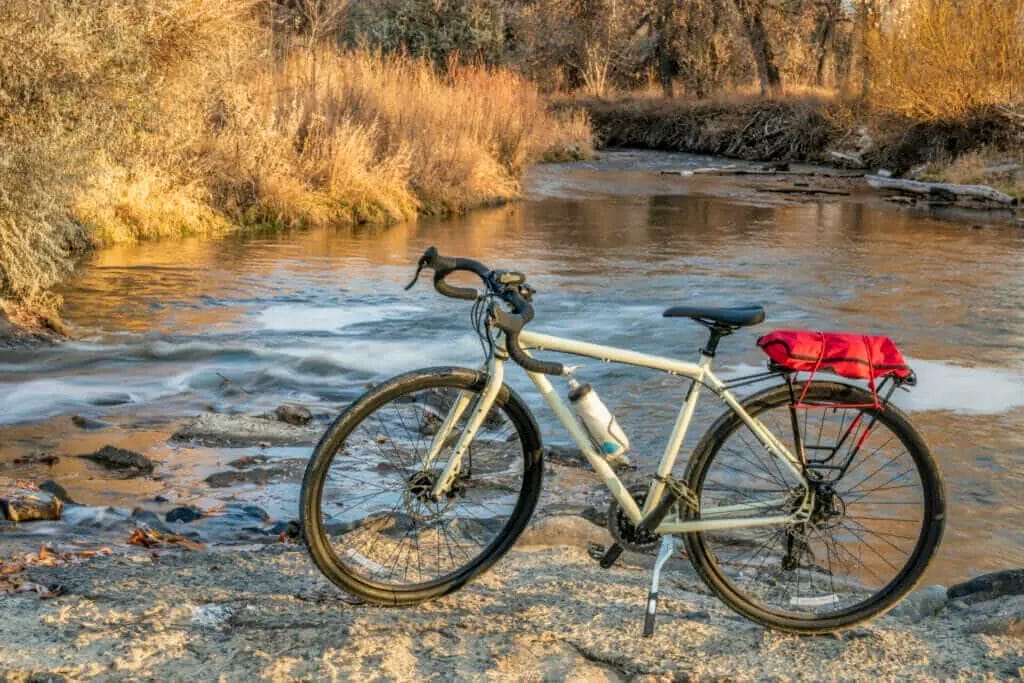Last Updated on September 25, 2023 by Vinson Lozano

The call of the open road and the thrill of endurance cycling might be nudging you toward the legendary Paris-Brest-Paris (PBP) randonnée. But before you start packing your gear, you need to know what it entails to qualify for this race.
What is Paris Brest Paris (PBP)
Known as the “Olympics of Randonneuring,” the PBP is not just another race. It’s your chance to test your endurance on a challenging 1200 km route. It is organized every four years by the Audax Club Parisien and has become a benchmark of long-distance cycling.
The allure and challenges of PBP
Being part of the PBP can be an exhilarating experience. The camaraderie among the riders, the changing landscapes, and the rich history make it an unforgettable journey.
But don’t be fooled by the allure; PBP carries significant challenges, and it’s not for the faint-hearted. You will need to prepare mentally and physically to tackle the long road, whimsical weather, and meeting the time controls.
Qualifying for PBP requires successful completion of a Super Randonneur series (200, 300, 400, and 600 kilometers) in the same calendar year of the event. Your cycling audacity will surely be put to the test. Persevering through the qualifiers brings you one step closer to being part of the PBP.
Here’s a table for quick reference:
| Steps To Qualify | Explanation |
|---|---|
| Completion of Super Randonneur series | Complete a series of brevet rides (200, 300, 400, and 600km) in the calendar year of the event. |
| Mental & Physical preparation | Prepare physically by training regularly and mentally to face the challenges of long-distance cycling. |
| Register before time | Register on time after qualifying by adhering to Audax Club Parisien’s timeline announcements. |
In the end, whether you’re aiming at setting a new record or simply enduring the journey, remember to enjoy the process. After all, it’s these experiences that make the race so remarkable.
Qualification Requirements
Ready to join the ranks of the dedicated cyclists who have completed the renowned Paris-Brest-Paris Randonneur? Before you start packing your bags, there are some important qualification steps you need to consider in order to be eligible for this prestigious event.
Understanding the qualification process
Your journey towards the Paris-Brest-Paris Randonneur starts with understanding and fulfilling the qualification process. The PBP, as it’s affectionately known, is not just any bike ride – it’s a serious endurance event with strict regulations and requirements. Arranged every four years by the Audax Club Parisien, this ride has been known to test the mettle of many seasoned cyclists.
Minimum distances and time frames
To qualify, you’ll need to complete a full series of brevets (certified long-distance rides) in the same year of the Paris-Brest-Paris event. These include 200, 300, 400, and 600km rides, all of which must be officially sanctioned by the Audax Club Parisien or Randonneurs Mondiaux. It’s crucial to keep strict track of all your qualifying brevets and their corresponding distances, as they are often needed when registering for the main event.
Approved brevets and their durations
Keep in mind the stipulated durations for each brevet: a maximum of 13.5 hours for the 200km, 20 hours for the 300km, 27 hours for the 400km, and 40 hours for the 600km brevet. Exceptional stamina and determination are required for the brevets, but remember that these aren’t races. What counts is that you finish within the prescribed time limits.
Here’s a summary of what you need to know:
| Qualification Aspect | Details |
|---|---|
| Understanding the Qualification Process | The Paris-Brest-Paris Randonneur event has a strict qualification process that begins with understanding what’s required of you. It’s held every four years by the Audax Club Parisien. |
| Minimum Distances and Time Frames | You need to complete all the brevets (200, 300, 400, 600km rides) in the same year as the PBP event. These brevets must be sanctioned by the Audax Club Parisien or the Randonneurs Mondiaux. |
| Approved Brevets and their Durations | Approved brevets come with fixed time limits for completion. You have 13.5 hours for the 200km, 20 hours for the 300km, 27 hours for the 400km, and 40 hours for the 600km ride. It’s about completion, not racing! |
Training for Paris Brest Paris
You might be wondering, how can I successfully qualify for the intense Paris Brest Paris? It’s not an easy journey, but it’s truly a rewarding experience for any cycling enthusiast. It requires a detailed training plan, a focus on endurance, distance, and the very crucial, night riding, and pacing.
Creating a training plan
First off, a well-crafted training plan is crucial. You’re not merely prepping for a Sunday ride; you have a 1,200 km audacious route ahead of you! A robust plan should detail weekly rides, gradually increasing the distance to eventually hit a 200 km ride comfortably. It should also account for rest days and nutrition. You should tailor this plan to meet your personal fitness levels, ensuring you’re doing challenging, but manageable workouts.
Building up endurance and distance
Next, you need to work on your stamina. Increase your ride lengths gradually every week, aim for higher speeds, and maintain a steady pace. If possible, take part in randonneuring-style events to gain experience and confidence. Remember, consistency is key! It’s not about how fast you can ride, but how long you can sustain.
Practicing night riding and pacing
Lastly, you ought to practice night riding and pacing. Paris Brest Paris isn’t a day event; therefore, expect to ride through the night. Becoming comfortable with navigating in low light conditions and managing your pace to prevent exhaustion is key. Try scheduling some of your rides at night to gain experience.
To sum up, be persistent and disciplined in your training. Know your limits and plan your physical progress wisely. And as always, keep safety in mind at all times. Good luck on your journey towards qualifying for Paris Brest Paris.
Equipment and Gear
Choosing the right bicycle
Are you preparing to take on the ultimate cycling challenge of Paris-Brest-Paris (PBP)? To ensure you have a successful ride, it’s crucial to start with the right equipment and gear. The choice of your bicycle is paramount when it comes to qualifying for PBP.
- Road bike: Most riders opt for a road bike due to its lightweight and aerodynamic qualities. It provides a good balance between speed and comfort over long distances.
- Frame size and fit: It’s important to choose a bike that fits you well. Consider getting a professional bike fitting to ensure comfort and prevent injuries during the ride.
Essential gear and accessories
Aside from the bicycle, there are several essential gear and accessories you need to bring along for PBP:
- Helmet: A well-fitted and protective helmet is a must for your safety.
- Lights: Ensure you have front and rear lights that meet the required brightness standards for night riding.
- Saddlebag: Pack a saddlebag with puncture repair kit, spare tubes, multitool, tire levers, and a compact hand pump.
- Cycling clothing: Invest in comfortable, moisture-wicking jerseys, padded shortspadded shorts and appropriate footwear for long durations of cycling.
Packing efficiently for PBP
Efficient packing is crucial for a smooth and organized ride:
- Organize your gear: Use labeled ziplock bags or packing cubes to keep your gear categorized and easily accessible.
- Optimize space: Roll your clothing items tightly to save space in your bags. Consider using compression packing cubes for further space optimization.
- Pack essentials in reachable locations: Items such as snacks, a small first-aid kit, and your route maps should be easily accessible without having to dig through your bags.
Remember to pack based on the specific requirements and regulations set by the PBP organizers.
By choosing the right bicycle, having essential gear and accessories, and packing efficiently, you’ll be well-equipped to qualify for Paris-Brest-Paris and conquer this incredible cycling challenge. Good luck on your journey!
Nutrition and Hydration
Fueling your body for endurance cycling
If you want to qualify for Paris-Brest-Paris, it’s essential to fuel your body properly for the endurance cycling challenge ahead. Here are some nutrition tips to help you prepare:
- Carbohydrates: Carbs are your body’s main source of energy for long-distance cycling. Prioritize consuming complex carbohydrates like whole grains, fruits, and vegetables to provide sustained energy during the ride.
- Protein: Protein is crucial for muscle repair and recovery. Make sure to include lean sources of protein in your meals and snacks, such as chicken, fish, tofu, eggs, or beans.
- Fats: Don’t neglect healthy fats in your diet, as they provide long-lasting energy. Include sources like avocados, nuts, seeds, and olive oil in your meals.
- Timing: Fuel up before your ride with a balanced meal containing carbohydrates, protein, and healthy fats. During the ride, consume small snacks or energy gels every hour or so to maintain energy levels.
Hydration strategies during the event
Staying properly hydrated during the Paris-Brest-Paris event is crucial for your performance and well-being. Consider these hydration strategies:
- Keep sipping: Drink small amounts of water or electrolyte-rich beverages regularly throughout the ride, rather than waiting until you feel thirsty.
- Electrolytes: Replace electrolytes lost through sweat by consuming sports drinks or adding electrolyte tablets to your water. This will help maintain proper hydration levels and prevent cramping.
- Monitor urine color: Keep an eye on the color of your urine. If it’s pale yellow, you’re well-hydrated. Darker urine indicates dehydration, so make sure to drink more fluids.
Dealing with nutrition challenges on the road
During the Paris-Brest-Paris event, you may encounter nutrition challenges on the road. Here are some tips to overcome them:
- Pack portable snacks: Carry lightweight, easily digestible snacks like energy bars, bananas, nuts, or sandwiches to fuel yourself between checkpoints.
- Explore local options: Take advantage of food stops along the course to refuel with a balanced meal or snack.
- Listen to your body: Pay attention to your hunger and energy levels. If you feel low on energy, take a break and replenish with a nutritious snack or meal.
Remember, proper nutrition and hydration are vital for qualifying for Paris-Brest-Paris. With these strategies, you’ll be better equipped to tackle the endurance cycling challenge and achieve your goal.
Mental and Emotional Preparation
Building mental resilience
To qualify for Paris Brest Paris (PBP), you not only need physical stamina but also mental resilience. The event is a grueling 1200-kilometer long-distance cycling challenge that tests both your body and mind. Here are some strategies to build mental resilience:
- Set small goals: Break down the big challenge into smaller milestones. This helps you stay focused and motivated as you achieve short-term objectives throughout the training process.
- Practice mental toughness: Train your mind to push through difficult moments by embracing discomfort during training rides. This builds your mental resilience and prepares you for the physical and mental demands of PBP.
Visualizing success and overcoming doubts
Visualization can play a crucial role in helping you qualify for PBP. By visualizing yourself successfully completing the event, you create a positive mental image that boosts your confidence and reduces doubts. Here’s how to effectively use visualization:
- Create a mental movie: Close your eyes and imagine riding through different checkpoints, tackling challenging terrains, and crossing the finish line. Visualize each scenario in vivid detail, including the sights, sounds, and emotions.
- Reframe negative thoughts: When doubts or negative thoughts arise, replace them with positive affirmations. For example, instead of thinking “I don’t know if I can finish,” change it to “I am capable of overcoming challenges and completing PBP.”
Managing sleep deprivation during PBP
During PBP, sleep deprivation can be a significant challenge. Riders often deal with minimal sleep to complete the event within the time limit. Here are some tips to manage sleep deprivation effectively:
- Practice power napping: Take short naps of 15-30 minutes during designated rest stops. These power naps can provide a mental and physical boost without causing excessive drowsiness.
- Stay hydrated and energized: Proper nutrition and hydration play a vital role in sustaining energy levels and staying alert. Consume regular meals and snacks to fuel your body throughout the event.
Remember, qualifying for PBP requires both physical and mental preparedness. Incorporating these mental and emotional strategies alongside your physical training will increase your chances of successfully completing the challenging event.
Logistics and Support
Understanding PBP logistics
If you have your sights set on participating in the legendary Paris-Brest-Paris (PBP) cycling event, it’s crucial to understand the logistics involved. PBP is a challenging endurance ride that covers a distance of 1,200 kilometers in France. Here are some essential points to consider:
- Registration: Ensure you meet the qualification requirements and register in advance to secure your spot.
- Training: PBP demands excellent physical condition, so be sure to prepare yourself with long-distance training rides.
Finding accommodation and support crews
During PBP, it’s essential to have a support crew and plan your accommodation. Here’s what you need to know:
- Support crew: Identify reliable individuals who can provide assistance throughout the event, including mechanical support, nutrition, and emotional support.
- Accommodation: Since PBP takes place every four years, it attracts a large number of participants. Plan your accommodation well in advance to secure a comfortable place to rest before and after the ride.
Navigating checkpoints and time limits
Checkpoint control and time limits are crucial aspects of PBP. Pay attention to the following:
- Control points: PBP has several mandatory control points along the route. Ensure you check in at each one to successfully complete the event.
- Time limits: PBP has strict time limits to ensure the safety and well-being of participants. Familiarize yourself with these time limits and plan your ride accordingly.
Remember, qualifying for PBP and successfully completing the ride requires careful planning, dedication, and commitment to training. Take the time to understand the logistics, find reliable support, and prepare yourself physically and mentally for this incredible cycling adventure. Good luck!


